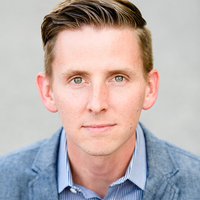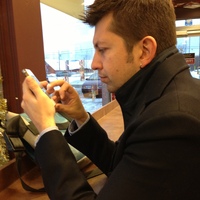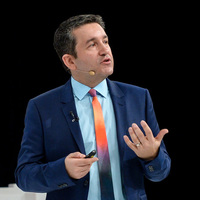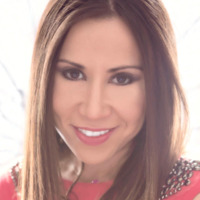
Seth C Lewis
Seth C. Lewis, Ph.D., is the founding holder of the Shirley Papé Chair in Emerging Media in the School of Journalism and Communication at the University of Oregon, and is an affiliated fellow of the Information Society Project at Yale Law School. A two-time winner of ICA Journalism Studies Division’s Article of the Year Award, Lewis studies the digital transformation of journalism, with a particular emphasis on data, algorithms, automation, and related developments. He has published some 50 journal articles and book chapters, edited the special issue “Journalism in an Era of Big Data” (Digital Journalism, 2015), and co-edited the book Boundaries of Journalism: Professionalism, Practices, and Participation (Routledge, 2015). Previously, he was an associate professor at the University of Minnesota, held visiting appointments at Stanford and Yale, received a Ph.D. from the University of Texas at Austin, and was a journalist at The Miami Herald.
Supervisors: Stephen D. Reese
Address: School of Journalism and Communication
1275 University of Oregon
Allen Hall Room 219
Eugene, OR 97403
USA
Supervisors: Stephen D. Reese
Address: School of Journalism and Communication
1275 University of Oregon
Allen Hall Room 219
Eugene, OR 97403
USA
less
Related Authors
Sharon Ringel
University of Haifa
Andreas Kollias
Panteion University of Social and Political Sciences
Chris Peters
Roskilde University
Marcel Broersma
University of Groningen
Steen Steensen
OsloMet—Oslo Metropolitan University
Jacob L Nelson
Arizona State University
Vaios Papanagnou
American University in Dubai
Tina Askanius
Malmö University
Alfred Hermida
University of British Columbia
Claudia Mellado
Pontificia Universidad Catolica de Valparaiso
InterestsView All (19)










Uploads
Articles by Seth C Lewis
analysis of more than 22,000 of their tweets (postings) on the microblog platform Twitter, thisstudy reveals that the journalists more freely express opinions, a common microblogging practice
but one which contests the journalistic norm of objectivity (impartiality and nonpartisanship). To a lesser extent, the journalists also adopted two other norm-related microblogging features:providing accountability and transparency regarding how they conduct their work and sharing user-generated content with their followers. The journalists working for national newspapers,national television news divisions, and cable news networks were less inclined in their tweets than their counterparts working for less ‘‘elite’’ news outlets, to relinquish their gatekeeping role by sharing their stage with other news gatherers and commentators, or to provide accountability
and transparency by providing information about their jobs, engaging in discussions with other tweeters, writing about their personal lives, or linking to external websites.
analysis of more than 22,000 of their tweets (postings) on the microblog platform Twitter, thisstudy reveals that the journalists more freely express opinions, a common microblogging practice
but one which contests the journalistic norm of objectivity (impartiality and nonpartisanship). To a lesser extent, the journalists also adopted two other norm-related microblogging features:providing accountability and transparency regarding how they conduct their work and sharing user-generated content with their followers. The journalists working for national newspapers,national television news divisions, and cable news networks were less inclined in their tweets than their counterparts working for less ‘‘elite’’ news outlets, to relinquish their gatekeeping role by sharing their stage with other news gatherers and commentators, or to provide accountability
and transparency by providing information about their jobs, engaging in discussions with other tweeters, writing about their personal lives, or linking to external websites.
Will it be defined by a declining legacy media; the diminution of important journalism like international reporting; the end of whole disciplines like photojournalism and investigative reporting? Or will the old be replaced by robust new ways of learning and sharing the news, like participatory journalism, ambitious freelancing, and news satire? What’s clear is that the shift from analog to digital is more than just technological—it is a rift between eras. Reporting has evolved from one-way to many-to-many; from exclusive and expensive to accessible and cheap. The ability to create and share news is now handheld and ubiquitous.
But it would be a grave mistake to forget the fundamental role of news—to nourish an informed democracy. As Thomas Jefferson noted in 1789, “Whenever the people are well-informed, they can be trusted with their own government.” With that in mind, our task in this second edition of The Future of News is to explore whether today’s news is intellectually closer to broccoli … or bon bons.
In this edition of The Future of News: An Agenda of Perspectives we examine:
• The tension—and congruence—between legacy and new media and the evolving economic models of both.
What the lessons of the past can teach us about the future of news.
• The journalistic value and importance of international reporting and quality photojournalism, and how they’re compromised by declining budgets.
• The virtual explosion in the amount of information now available and why today’s mandate is less about the availability of information and more about curating the right information.
Left, right and center—a debate on the impact of media fragmentation on the quality and credibility of news.
• How social media creates an opportunity for an ever-more satisfying and engaging user experience with news.
• Some really different ways of thinking about information, including the blurring line between journalism and satire—and the value of games in news.
Join us as we share the perspectives of seasoned journalists, highly trained academics, and new media visionaries as they explore and predict the Future of News.
Biography
Kelly Kaufhold, Amber Willard Hinsley and Seth C. Lewis are former journalists with years of experience at news organizations including the Los Angeles Times and the Miami Herald. Kelly is an assistant professor in the College of Mass Communications at Texas Tech University; Amber is an assistant professor in the Department of Communication at Saint Louis University; Seth is an assistant professor in the School of Journalism & Mass Communication at the University of Minnesota.
The Future of News: An Agenda of Perspectives attempts to bring some order to the cacophony of opinions about journalism's future.
• Tries to synthesize the key trends, patterns, and practices that are reshaping news in the digital age, through contributions from seasoned journalists and expert academics.
• Outlines the promise and perils of today's media environment, which features increased opportunities for citizen engagement through social networks and cheap digital tools as well as spiraling declines in news consumption and challenging conditions for professional journalists.
• Doesn't predict the future, but rather sets forth an agenda of observations and questions to guide our thinking in this new age of journalism.